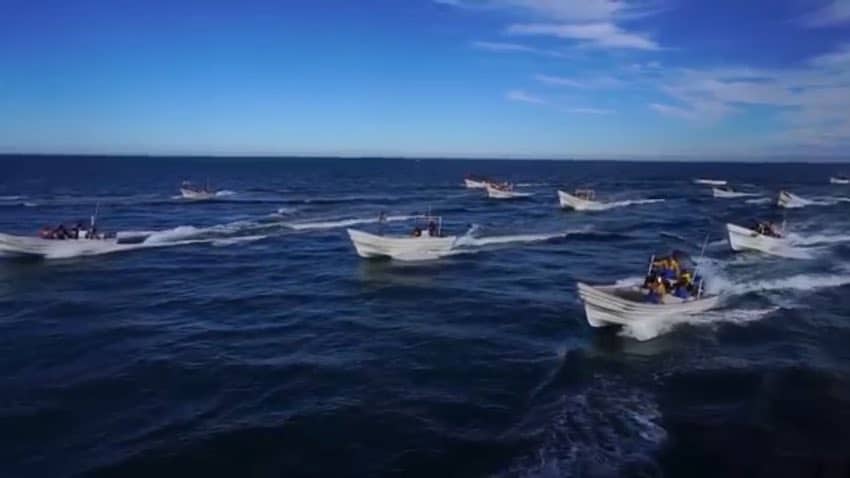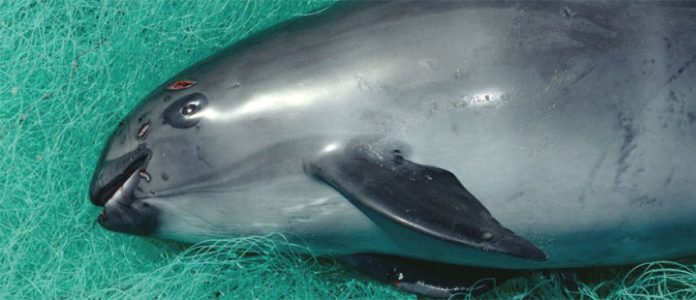Mexico is in negotiations to reverse trade sanctions imposed for its failure to protect the endangered vaquita porpoise.
President López Obrador sent eight officials from the Ministry of Environment and Natural Resources (Semarnat) to Geneva, to discuss the sanctions with the Convention on International Trade in Endangered Species of Wild Fauna and Flora (CITES).

CITES sanctioned Mexico on March 27, preventing member countries from trading with Mexico in 3,148 species of animals and plants.
The measures are intended to pressure Mexico into protecting the critically endangered vaquita porpoise, whose numbers have dropped to as few as ten in the wild. It is the world’s smallest cetacean (the family of marine mammals including dolphins and whales).
The vaquita is native to the Gulf of California, where it is threatened by illegal fishing. The porpoises often die tangled in nets used to catch totoaba fish, which are highly coveted on the Chinese black market for their supposed medicinal properties.
Mexico has received multiple warnings for its failure to crack down on this illegal fishing. It proposed a draft action plan on Feb. 27, which CITES dismissed as inadequate.
The week after the sanctions, while negotiating in Geneva, Semarnat released a statement saying they were working with the Navy and the Agriculture and Rural Development Ministry to review fishery protection measures.
“In recent days, more than 4,700 meters of totoaba nets and a boat were secured and destroyed,” the statement said.
It added that concrete blocks had been installed to deter illegal boats from entering the vaquita’s core habitat and that new technologies were being introduced to promote sustainable fishing methods.
However, Mexican officials have also protested that sanctioning Mexico for illegal totoaba fishing is “inequitable.”
“Mexico is not solely responsible and is not the only one that should have to spend on this,” the Federal Attorney for Environmental Protection, Blanca Alicia Mendoza Vera, told Expansión newspaper.
She argued that CITES should create a fund to prevent illegal totoaba fishing and require market and transit countries, such as the United States and China, to contribute.
“We require the participation, support and collaboration of transit and destination countries,” she said. “Cooperation must be close and determined, not only in speech, but also by providing resources.”
With reports from Infobae and La Jornada
